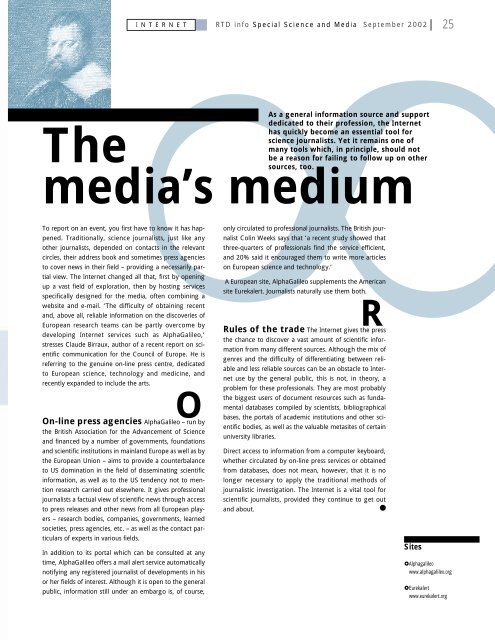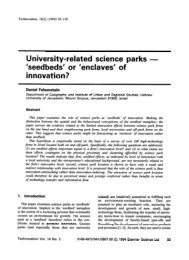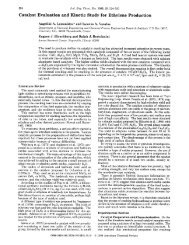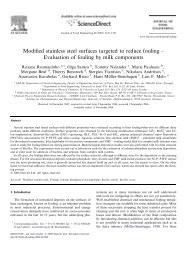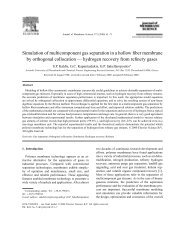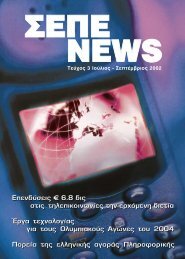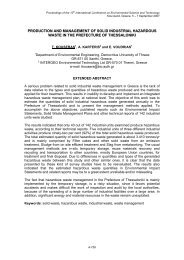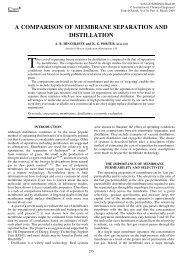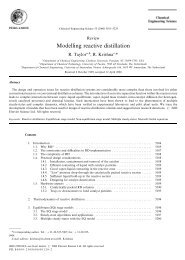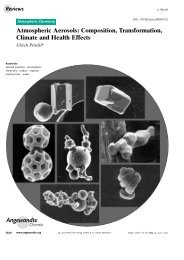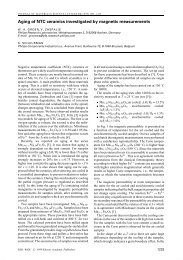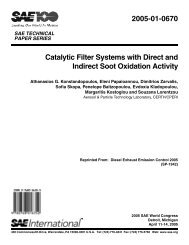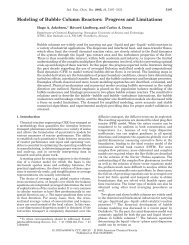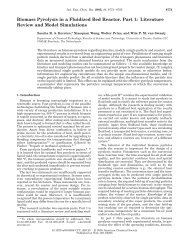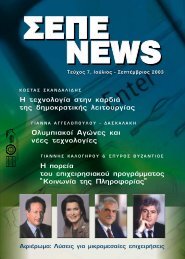RTD info - European Commission - Europa
RTD info - European Commission - Europa
RTD info - European Commission - Europa
Create successful ePaper yourself
Turn your PDF publications into a flip-book with our unique Google optimized e-Paper software.
The<br />
media’s medium<br />
To report on an event, you first have to know it has happened.<br />
Traditionally, science journalists, just like any<br />
other journalists, depended on contacts in the relevant<br />
circles, their address book and sometimes press agencies<br />
to cover news in their field – providing a necessarily partial<br />
view. The Internet changed all that, first by opening<br />
up a vast field of exploration, then by hosting services<br />
specifically designed for the media, often combining a<br />
website and e-mail. ‘The difficulty of obtaining recent<br />
and, above all, reliable <strong>info</strong>rmation on the discoveries of<br />
<strong>European</strong> research teams can be partly overcome by<br />
developing Internet services such as AlphaGalileo,’<br />
stresses Claude Birraux, author of a recent report on scientific<br />
communication for the Council of Europe. He is<br />
referring to the genuine on-line press centre, dedicated<br />
to <strong>European</strong> science, technology and medicine, and<br />
recently expanded to include the arts.<br />
O<br />
On-line press agencies AlphaGalileo – run by<br />
the British Association for the Advancement of Science<br />
and financed by a number of governments, foundations<br />
and scientific institutions in mainland Europe as well as by<br />
the <strong>European</strong> Union – aims to provide a counterbalance<br />
to US domination in the field of disseminating scientific<br />
<strong>info</strong>rmation, as well as to the US tendency not to mention<br />
research carried out elsewhere. It gives professional<br />
journalists a factual view of scientific news through access<br />
to press releases and other news from all <strong>European</strong> players<br />
– research bodies, companies, governments, learned<br />
societies, press agencies, etc. – as well as the contact particulars<br />
of experts in various fields.<br />
In addition to its portal which can be consulted at any<br />
time, AlphaGalileo offers a mail alert service automatically<br />
notifying any registered journalist of developments in his<br />
or her fields of interest. Although it is open to the general<br />
public, <strong>info</strong>rmation still under an embargo is, of course,<br />
∞25<br />
I N T E R N E T <strong>RTD</strong> <strong>info</strong> Special Science and Media September 2002<br />
As a general <strong>info</strong>rmation source and support<br />
dedicated to their profession, the Internet<br />
has quickly become an essential tool for<br />
science journalists. Yet it remains one of<br />
many tools which, in principle, should not<br />
be a reason for failing to follow up on other<br />
sources, too.<br />
only circulated to professional journalists. The British journalist<br />
Colin Weeks says that ‘a recent study showed that<br />
three-quarters of professionals find the service efficient,<br />
and 20% said it encouraged them to write more articles<br />
on <strong>European</strong> science and technology.’<br />
A <strong>European</strong> site, AlphaGalileo supplements the American<br />
site Eurekalert. Journalists naturally use them both.<br />
R<br />
Rules of the trade The Internet gives the press<br />
the chance to discover a vast amount of scientific <strong>info</strong>rmation<br />
from many different sources. Although the mix of<br />
genres and the difficulty of differentiating between reliable<br />
and less reliable sources can be an obstacle to Internet<br />
use by the general public, this is not, in theory, a<br />
problem for these professionals. They are most probably<br />
the biggest users of document resources such as fundamental<br />
databases compiled by scientists, bibliographical<br />
bases, the portals of academic institutions and other scientific<br />
bodies, as well as the valuable metasites of certain<br />
university libraries.<br />
Direct access to <strong>info</strong>rmation from a computer keyboard,<br />
whether circulated by on-line press services or obtained<br />
from databases, does not mean, however, that it is no<br />
longer necessary to apply the traditional methods of<br />
journalistic investigation. The Internet is a vital tool for<br />
scientific journalists, provided they continue to get out<br />
and about.<br />
Sites<br />
#Alphagalileo<br />
www.alphagalileo.org<br />
#Eurekalert<br />
www.eurekalert.org


